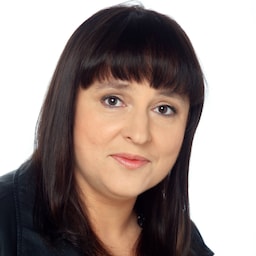Despite the flood of information online
What information our children need today
While information used to be much harder to come by, nowadays there is more than enough of it on the internet and in social media. How do young people deal with this when it comes to contraception? Do they still need information at all? What challenges do they face? We asked them.
"Compared to the past, there is actually more information and easier access to it," says Mirjam Scheck from the Austrian Society for Family Planning (ÖGF), which runs the "First Love" advice centers: "The crucial question, especially in the medical field, is what information is well-founded and correct. And in our youth advice centers, we observe that there is a lot of uncertainty and a great need for education."
This development can also be seen at "Rat auf Draht". Birgit Satke, head of the emergency number 147, therefore appeals to parents and guardians: "Don't leave sex education to the media, but become active yourself."
Children can come into contact with the topic of sexuality very early on through the media, advertising and the digital world: "It is therefore important that they can correctly classify the content disseminated there," emphasizes Satke, "so they are better protected from misinformation, manipulation and abuse at the same time."
We are noticing a greater sense of responsibility: Young people nowadays are more concerned about contraception and which contraceptive would be suitable for them.

Birgit Satke, Leiterin der Notrufnummer 147, Rat auf Draht
Bild: Rat auf Draht
Satke and her team have also noticed a greater sense of responsibility among young people when it comes to contraception. "In other words, young people nowadays are more concerned about contraception and which contraceptive would be suitable for them," says the 147 manager.
Scheck is also aware of this: A certain "hormone skepticism" has emerged in recent years. "The trend is therefore moving away from the pill and towards hormone-free contraceptives," says the ÖGF employee.
However, even with the widespread use of social media, "many topics relating to sexuality and contraception are still associated with shame," reports Scheck, "beauty ideals are often reproduced through social media, which causes a lot of pressure and sometimes also self-doubt among young people."
This is where relatives and friends are sometimes called upon. But how and when should parents talk to their children about sex and contraception? "Sex education should be started as early as possible," says Satke. However, it is important that the information given is age-appropriate.
As soon as children - regardless of their age - ask their parents, parents have to take a stand and should provide adequate and needs-oriented information.

Mirjam Scheck, BA, ÖGF-Koordination Beratung
Bild: ÖGF
Scheck emphasizes that parents should provide "adequate and needs-based information" as soon as children ask: "In our experience, denying children answers or even making them taboo is not very helpful."
Only if children are sexually educated can they develop a positive body image, pay attention to their boundaries and better recognize potential dangers, explains the 147 manager: "Children should learn that it is completely normal to have sexual needs. Parents should answer their children's questions openly and honestly."
The ÖGF employee also emphasizes this: "Sexual education is part of health literacy," says Scheck: "Sexuality in its various forms of expression is part of the development of every person's personality and encompasses the emotional, physical and social levels. People are sexual beings from the very beginning. Sexual development is understood as a lifelong and self-determined process."
In a nutshell
- In the previous year, Rat auf Draht provided 259 consultations on contraception and 1939 in the sexuality category. The most frequent inquiries were about pregnancy (498 consultations), sex education in general (329), contraception (259) and sexual orientation (238). All information about the "Rat auf Draht" emergency number 147 for children and young people can be found here - and here is the parents' page.
- The ÖGF's " First Love" youth advice centers are open three afternoons a week, while the online advice service is available around the clock. Frequent topics: the right contraceptive, how quickly can you get pregnant, how does a cycle work, what to do if you have pain during sex? The ÖGF also offers sex education workshops - details here.
The 147 director agrees: sexuality education should "not be seen as a one-off educational talk, but as a topic that accompanies children as they grow up".
This article has been automatically translated,
read the original article here.












Da dieser Artikel älter als 18 Monate ist, ist zum jetzigen Zeitpunkt kein Kommentieren mehr möglich.
Wir laden Sie ein, bei einer aktuelleren themenrelevanten Story mitzudiskutieren: Themenübersicht.
Bei Fragen können Sie sich gern an das Community-Team per Mail an forum@krone.at wenden.